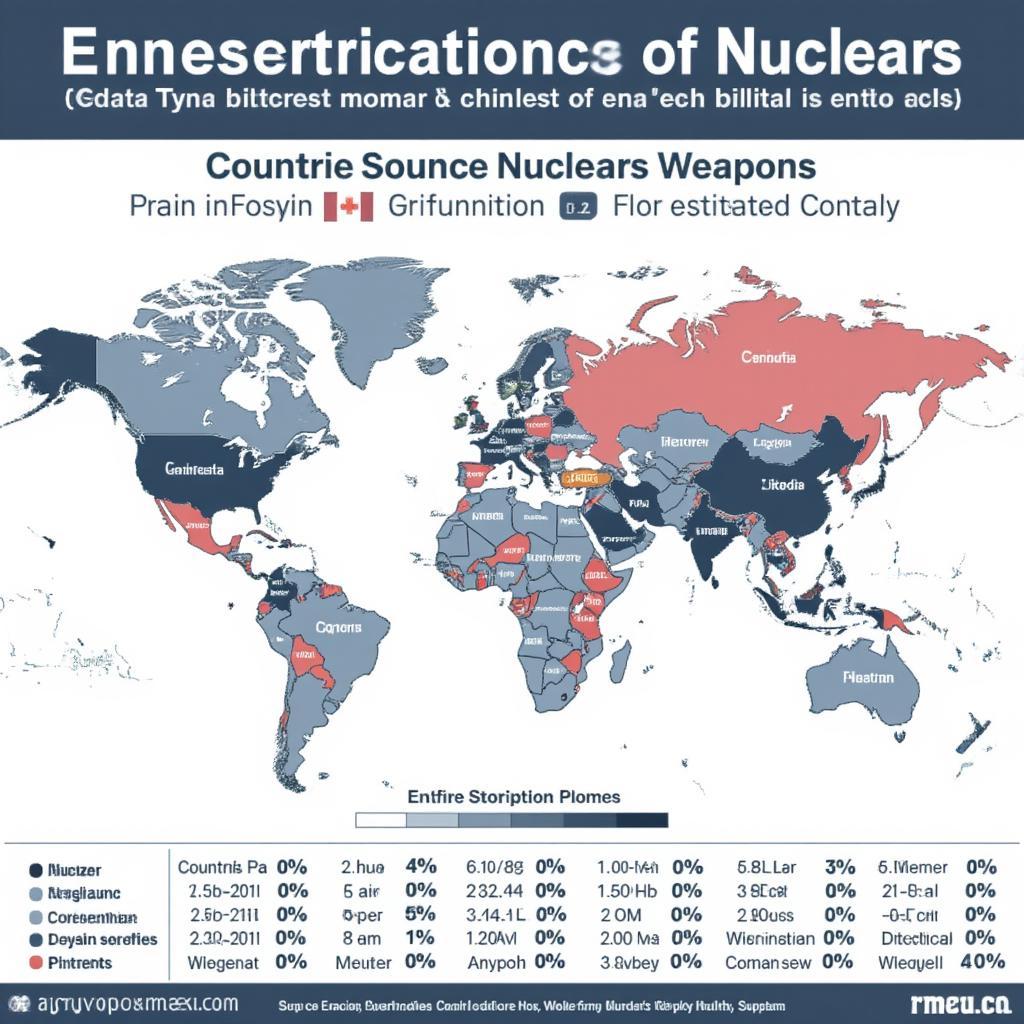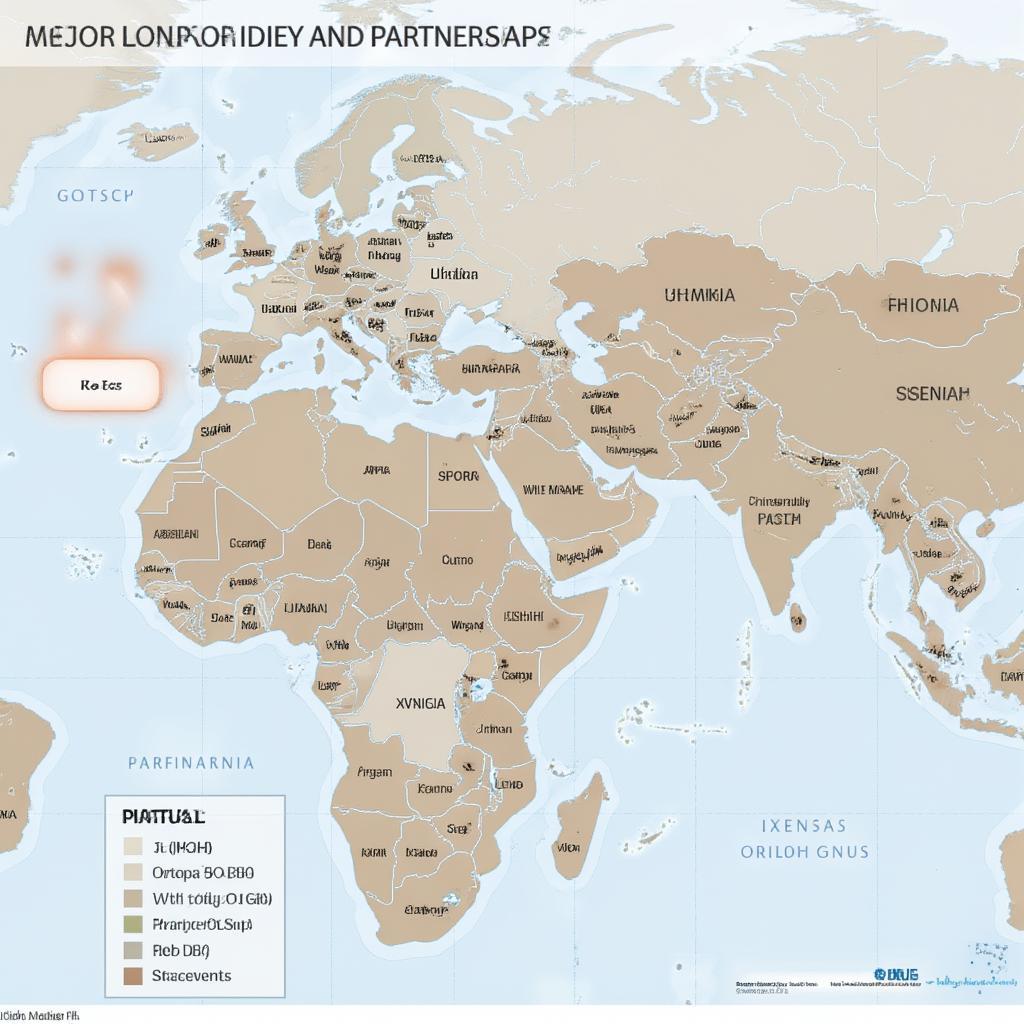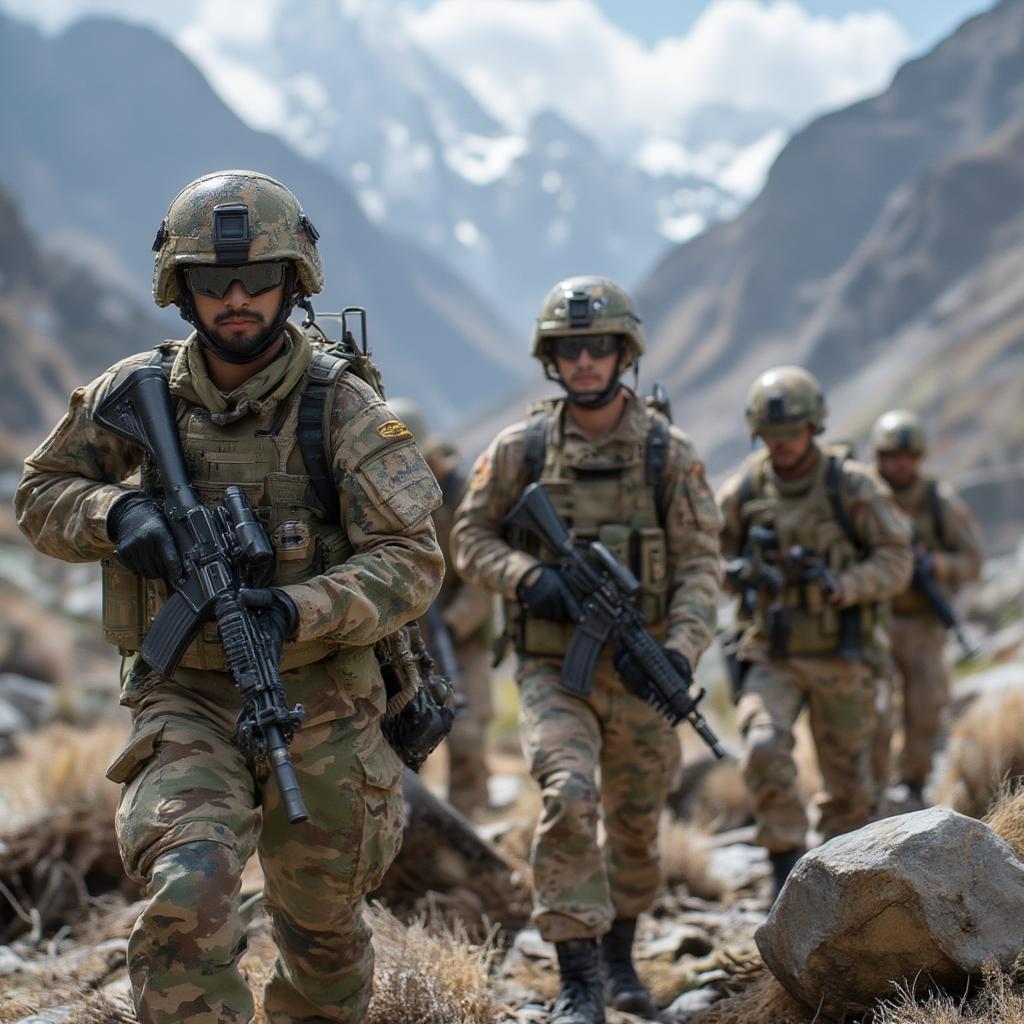Ranking Global Military: A Deep Dive into Power Dynamics

The global military landscape is a complex web of power, constantly shifting and evolving. Ranking Global Military strength is a multifaceted endeavor, influenced by a range of factors far beyond simple troop numbers or weapon counts. This article delves into the intricacies of assessing military power, exploring the key indicators, current trends, and the geopolitical implications of global military rankings.
Key Indicators of Military Strength: Beyond the Numbers
While sheer size can be impressive, true military strength lies in a complex interplay of various factors. Modern warfare demands technological superiority, highly trained personnel, robust economic backing, and strategic geographical positioning. Analyzing military power involves evaluating qualitative and quantitative aspects, including:
-
Defense Budget: A nation’s financial commitment to its military reflects its prioritization of defense and its ability to invest in advanced weaponry, research and development, and personnel training. A higher defense budget doesn’t automatically translate to greater strength but indicates a nation’s capacity to maintain and modernize its forces.
-
Military Technology: The rapid pace of technological advancement dictates the nature of modern warfare. Possession of cutting-edge technology, such as stealth aircraft, advanced missile systems, cyber warfare capabilities, and sophisticated intelligence gathering tools, grants a significant advantage in any conflict.
-
Troop Strength and Training: While numbers matter, the quality of training and the morale of troops are equally crucial. A well-trained, highly motivated force can often outperform a larger but less skilled army. Special forces units and their specialized capabilities also play a crucial role in modern military operations.
-
Geographical Factors: A country’s geographical location, terrain, and access to natural resources can significantly impact its military strength. Natural barriers, strategic access points, and proximity to potential adversaries all contribute to a nation’s defensive and offensive capabilities.
The Influence of Geopolitics on Military Rankings
Geopolitical considerations significantly impact a nation’s military posture and its ranking on the global stage. Alliances, regional conflicts, and power struggles influence defense spending, military deployments, and strategic partnerships.
-
Alliance Networks: Membership in powerful military alliances, such as NATO, provides a framework for collective defense and shared resources, significantly enhancing a nation’s overall security and influencing its military priorities.
-
Regional Conflicts: Ongoing conflicts and tensions in various regions of the world can lead to rapid military buildup and shifts in global power dynamics. The need to respond to immediate threats often dictates a nation’s defense priorities and influences its ranking among global military powers.
-
Power Projection Capabilities: The ability to deploy and sustain military forces far from national borders is a critical aspect of military strength. Naval power, airlift capacity, and logistical infrastructure contribute to a nation’s ability to project power globally.
The Role of Nuclear Weapons in Global Military Power
Nuclear weapons remain a significant factor in global power dynamics, acting as a deterrent and fundamentally shaping military strategies. While the number of nuclear warheads a country possesses is an important metric, the delivery systems, command and control infrastructure, and overall nuclear posture are equally vital.
The potential for mutually assured destruction (MAD) has fundamentally altered the nature of warfare, making large-scale conventional conflicts between nuclear powers less likely. However, the presence of nuclear weapons also introduces new risks and challenges to global security.
Professor Johnathan Blackwood, a leading expert in international security at the Institute for Global Strategic Studies, states, “Nuclear weapons remain the ultimate guarantor of national sovereignty, but their very existence presents a paradox – they deter large-scale conflict but also introduce the potential for catastrophic consequences.”

Future Trends in Global Military Power
The future of global military power is likely to be shaped by several key trends, including:
-
Technological Advancements: Emerging technologies such as artificial intelligence (AI), autonomous weapons systems, hypersonic missiles, and advanced cyber capabilities will have a profound impact on the future of warfare.
-
Asymmetric Warfare: Non-state actors and smaller nations are increasingly employing asymmetric tactics, including cyberattacks, terrorism, and unconventional warfare, to challenge larger, more conventionally powerful militaries.
-
Space Militarization: The increasing importance of space for communication, navigation, and intelligence gathering is leading to a growing militarization of space, with nations developing anti-satellite weapons and space-based weapon systems.
Dr. Emily Carter, a renowned military strategist and author of “The Future of Warfare,” argues, “The lines between conventional and unconventional warfare are blurring. Future conflicts will be characterized by hybrid approaches, incorporating cyber warfare, information operations, and unconventional tactics.”
Conclusion: A Multifaceted Landscape
Ranking global military power is a complex and dynamic process, influenced by a wide range of factors that extend far beyond simple numerical comparisons. Understanding the interplay of economic strength, technological innovation, geopolitical factors, and human capital is crucial for comprehending the global military landscape. As technology continues to evolve and the nature of warfare changes, the criteria for assessing military strength will continue to adapt, reflecting the ever-shifting balance of power in the world. For a deeper understanding of specific military rankings and comparisons, you can explore resources like countries ranked by military power and military strength ranking. The complexities of armed forces of the world ranked require careful consideration of numerous factors. Resources such as top best military in the world and military world provide valuable insights into these intricacies.




